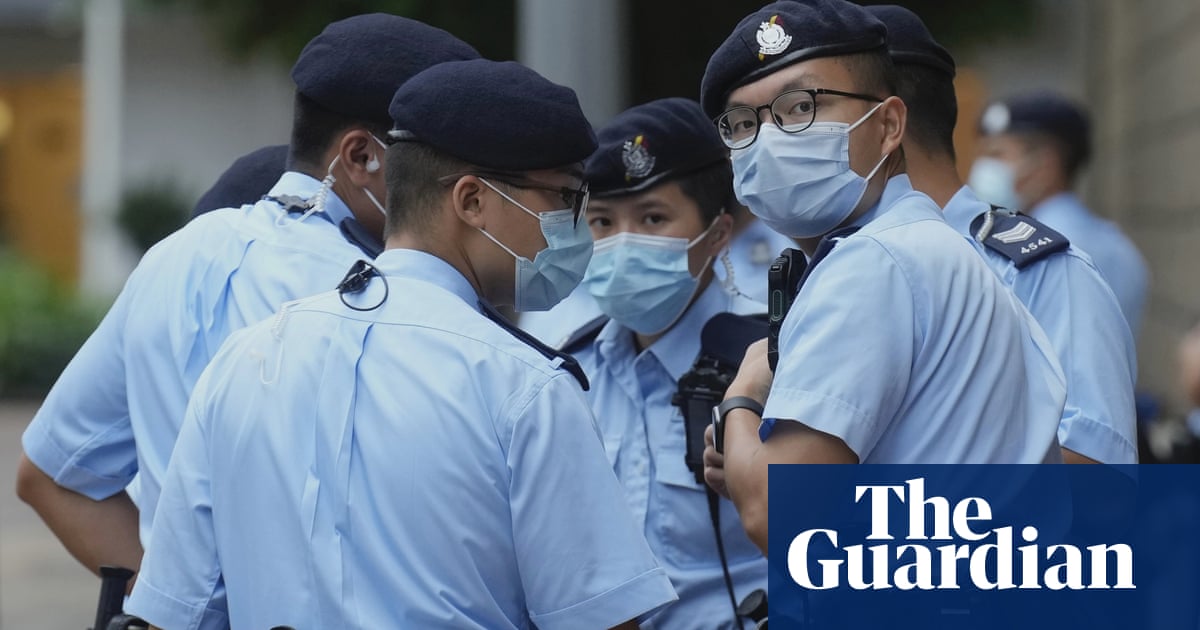Hong Kong’s first ‘national security’ trial begins without jury
Show caption Tong Ying-kit arrives at court in a police van in July last year. He faces a life sentence if convicted. Photograph: Vincent Yu/AP World news Hong Kong’s first ‘national security’ trial begins without jury First trial under the new law is a landmark moment for the financial hub’s fast-changing legal traditions Emma Graham-Harrison Wed 23 Jun 2021 16.44 BST Share on Facebook
Share on Twitter
Share via Email
Hong Kong has begun its first trial under the city’s new national security law, sweeping aside a long tradition of trial by jury, with a panel of judges set to decide the case.
Tong Ying-kit, 24, allegedly drove his motorcycle into a group of police officers during protests on 1 July last year, hours after the wide-ranging law came into force.
His plea for trial by jury was turned down, with the city’s justice secretary arguing that juror safety could be at risk, given the volatile political climate in Hong Kong.
It marked a legal watershed for a city that has built its financial reputation on rule of law, with trial by jury a cornerstone of the 176-year-old common law system. The city’s judiciary describes the system on its website as one of the legal framework’s “most important features”.
Tong’s lawyers argued he deserved to have a jury hear the case because he faces a life sentence if convicted. That was rejected by two courts.
Tong faces charges of inciting secession and terrorism, as well as a charge of dangerous driving. He pleaded not guilty to all three charges as the trial began on Wednesday morning.
The trial is also seen as a test of political free speech in the city. His motorbike was flying a flag that read “Liberate Hong Kong, revolution of our times”, a pro-democracy slogan that became an unofficial motto of protests across the city in 2019.
Prosecutors said at the start of the case they would show the slogan, now effectively illegal, amounted to a separatist rallying cry from people seeking “regime change”.
While a minority of protesters called for full independence, for many the demonstrations and their slogans expressed a broader call for greater autonomy and democratic rights within the Chinese system.
These were promised to the city as part of the 1997 handover from British colonial rule, under a “one country, two systems” deal that allowed the city to be part of China while preserving its way of life.
Critics say that agreement has essentially been torn up by the national security law that was written in Beijing and imposed on Hong Kong last year.
Both Chinese and local authorities say they needed the extra powers to restore order to a city roiled by months of protests. However, since it came into force it has been used to dismantle much of the legal and political rights and protections that gave Hong Kong a degree of autonomy and helped make it an international hub.
Police and prosecutors have targeted peaceful protesters, prominent academics and journalists, with freedoms of protest, speech and even academic research curtailed. This week the law has been used to effectively shut down Apple Daily, the city’s largest and most influential pro-democracy newspaper.
National security police raided its offices last week as part of a crackdown that also included the freezing of its assets and accounts, crippling the company and guaranteeing its demise. It will print its last edition on Thursday.
More than 60 people have been charged under the law, including some of the city’s best-known democracy activists, but Tong’s case is unusual because he is the only person facing trial for an explicitly violent act.













